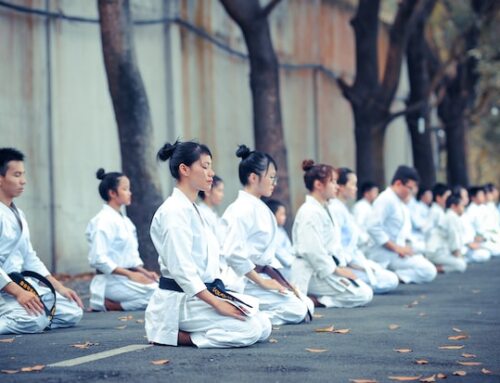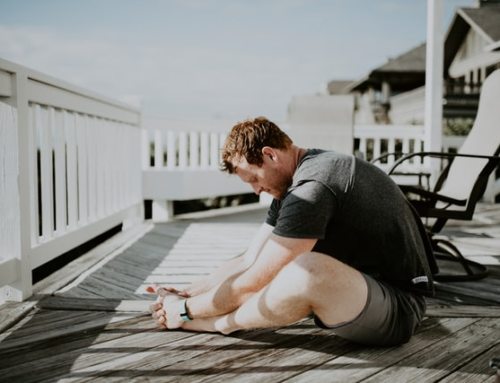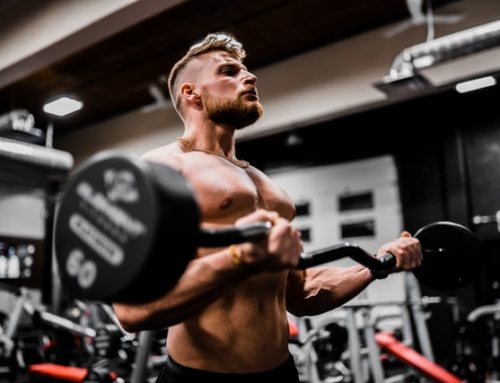Using a scale might not be the best way to track your fitness goals.
Back in high school, a friend and I ganged up on a buddy over “why” someone should workout:
“That’s so shallow man.”
“Yeah, at least the two of us workout for function and wanting to be healthy.”
He smiled and shook his head: “Nah man. I just want to look jacked!”
He didn’t care what we thought, and good for him. Years later, I’d have a slight change of heart.
Appearance vs. Health: A False Dichotomy
Most of us want to look good, and we exercise for that very purpose. We tell ourselves that it’s for health and longevity, and sure, it probably is for those reasons, too.
But if we’re honest, we want to look good now. We want others to perceive us as sexually attractive.
Some may say this is shallow, and perhaps there’s some truth to that. After all, the cliches are true: beauty is skin deep and often vanity. If that’s all you have in your life, something is clearly wrong.
But here’s a couple of reasons why shooting to look your best is a great idea, and perfectly fine (albeit perhaps insufficient) motivation to exercise (and why it might be a better indicator of progress and health than your weight):
Appearance Indicates Overall Health
The ironic thing about my ribbing session with my friend above was that we were creating a dichotomy. In reality, looking good and being healthy are in some ways the same thing.
Outward appearance is, in fact, a sign of underlying health. Generally speaking, if you look good, chances are your health is in a good place. A reasonable amount of body fat, healthy-looking skin, stronger muscles, and better posture all signal a healthier body.
Of course, I’m simplifying. Diseases and genetics also play a role, and some of that is inescapable and not in your control. There are also things about your appearance that you cannot change, at least not naturally, and mental health contributes to how we view ourselves. Keep all that in mind as your read this post and go about your fitness journey.
Still, looking good – and more specifically, looking fit – is a better sign of health than whatever number a scale gives you.
Our bodies signal to other human beings (and to ourselves) what’s going on underneath. From the skin on our face to our posture to even how we smell, we are communicating to others how healthy we are. And the healthier-looking we are, the more sexually attractive we are also.
A couple of quick disclaimers here. First, you can’t control everything about your outward appearance. What you can control involves exercise, nutrition and overall lifestyle.
A second major caveat here is that many of us struggle with body image issues. Some of you reading this are in great shape but still find every little thing “wrong” with your body and critique it to death.
I’d like to write more on this since it’s a major problem in our world. For now, check out some of my other posts on mental health and anxiety and do your best to look for your wins (see the next section!).
Appearance Affects How We See Ourselves and How Others See Us
Looking better (at least by your own definition of “better”) will also make you happier and decrease stress.
One of the reasons for this is that looking good impacts our self-respect, which overflows into other areas of life.
This means that looking better can actually impact your confidence and, therefore, impact other areas of your life.
This is true for any kind of success in life – especially the success that we’ve earned.
Success, even in small things that are totally within your control, can improve self-efficacy (how you feel about your ability to do things), which in turn improves mood and confidence, which usually results in even more success in other areas.
So, find some success in moulding and shaping your body over time and you’ll find yourself not only looking better but feeling more confident and capable. That’s what we call a win-win.
Appearance Indicates Fitness and Health Improvements Better Than Weight.
I’ve touched on this already.
Don’t get me wrong. Having the objective feedback of a number on a scale can focus you on your goal and, therefore, improve the likelihood of success. It can also be an accurate way of measuring said success, assuming the weight you’re losing is body fat.
Keyword: assuming.
Most people aren’t controlling all the variables, counting calories or protein intake, nor do they even really care about the number so much as how they look. To me, that makes using the scale a less effective and motivating metric than going by looks for the average person.
Which would you rather lose: “10 pounds” or the flabby tummy?
I think you’d say the latter.
Besides our preference for visual feedback, there’s the fact that you might be building muscle mass over time, especially if you aren’t controlling your calorie and protein intake closely. That means the number on the scale will be misleading, especially since muscle is denser (weighs more) than fat.
The fact is, weight is only an okay indicator of health at best. Your looks can be much more. Don’t be afraid of using your appearance as a marker and motivator for your personal fitness.
This post is part of a series:
2 Ways to Improve Muscle Definition





